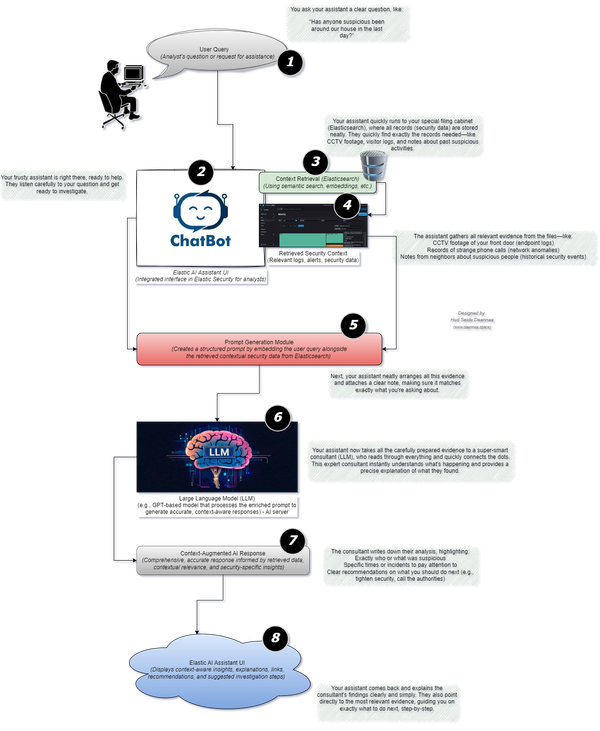The Hidden Dangers of Data Collection: Why Government Entities Should Be Wary of Google's Data Practices
Google's vast data collection—from search history to location data—poses significant risks for government entities. Reliance on these services can lead to loss of data sovereignty, national security threats, and foreign influence, making it crucial to prioritize data protection and sovereignty.


Check out our privacy engine

Related article

In today's digital age, data has become the new currency, and tech giants like Google have mastered the art of collecting vast amounts of information from users worldwide. While Google's services offer convenience and efficiency, the data collection practices behind these services pose significant risks, especially for government entities. This article explores how Google collects data, the types of data it gathers, and the potential dangers this poses, particularly in the context of national security and global power dynamics.
Understanding Google's Data Collection Methods
Google's data collection is pervasive and multi-faceted, involving various mechanisms and services that most users interact with daily:
-
Google Services Usage:
- Search Engine: Every time a user performs a search, Google logs the search query, the links clicked, and the websites visited afterward. This data helps Google refine its algorithms and target users with personalized ads [1].
- Gmail: Google's email service scans the content of emails to improve spam detection, suggest automated responses, and serve targeted advertisements [1].
- YouTube: Google tracks users' video-watching habits, including what they watch, comment on, like, or dislike. This data is used to recommend content and display relevant ads [1].
- Google Maps: Location data, including routes taken, places searched, and reviews left, is collected to enhance location-based services [1].
- Google Chrome: Browsing history, bookmarks, and autofill data are synced and stored if the user is signed into their Google account [1].
-
Google Analytics:
- Widely used by websites to monitor traffic, Google Analytics collects data about visitors, including their IP addresses, browsing patterns, and device information. This gives Google insight into user behavior across the internet [1].
-
Advertising Services:
- Google Ads: Tracks users' interactions with advertisements, including clicks, views, and the subsequent browsing activity, to build detailed user profiles [1].
- Google AdSense: Places cookies on users' devices to monitor their activity across different websites, further enhancing Google's ability to target ads [1].
-
Mobile Apps:
- Google Play Services: Tracks app downloads, in-app interactions, and user behavior to offer personalized app recommendations and targeted ads [1].
- Android OS: On Android devices, Google collects comprehensive data, including app usage, location, and even the device's battery status [1].
-
Google Assistant:
- Records voice commands and interactions with smart home devices, gathering data on users' preferences, routines, and even their home environments [1].
-
Location Data:
- Through GPS, Wi-Fi, IP address, and mobile networks, Google continuously collects users' location data, even when apps are not actively in use [1].
-
Google Home & Nest Devices:
- These smart devices collect audio recordings, temperature settings, security footage, and interaction data, providing Google with an intimate view of users' home lives [1].
The Types of Data Google Collects
The scope of data collected by Google is vast and includes:
- Personal Information: Names, email addresses, phone numbers, payment details, and other identifiers [1].
- Search History: Queries made, websites visited, and user interactions with search results [1].
- Location Data: Real-time GPS data, location history, and routes taken [1].
- Browsing History: Web pages visited, time spent on sites, and browsing patterns [1].
- App Activity: App downloads, usage patterns, and in-app purchases [1].
- Voice and Audio Information: Voice commands, audio recordings, and smart device interactions [1].
- Device Information: Details like device model, operating system, and hardware settings [1].
- Cookies and Tracking Pixels: Track user activity across the web and email interactions [1].
- Demographic Information: Inferred age, gender, interests, and language preferences [1].
- Interaction Data: Data on how users interact with ads, emails, and services [1].
The Dangers of Google's Data Collection for Government Entities
For government entities, the extensive data collection practices of Google pose several critical risks:
-
National Security Threats:
- Data Leverage by Foreign Nations: Google, as a U.S.-based company, operates under U.S. laws and regulations. The vast amounts of data it collects from government employees and agencies can be accessed by U.S. authorities, potentially giving foreign powers an edge in understanding and predicting government strategies, policies, and actions [2].
- Potential for Data Breaches: The centralization of sensitive data in Google's infrastructure increases the risk of large-scale data breaches. If malicious actors gain access to this data, they could exploit it for espionage, blackmail, or cyberattacks against government systems [2].
-
Loss of Data Sovereignty:
- Government entities risk losing control over their data by relying on Google's services. The data, often stored in Google's data centers, may be subject to foreign laws, leading to potential conflicts with national data protection regulations [3].
-
Targeted Influence and Manipulation:
- With detailed profiles of government officials and employees, Google's advertising and content recommendation algorithms could be used to influence decision-making, spread misinformation, or manipulate public opinion. This could have severe implications for national security and democratic processes [4].
-
Economic and Strategic Disadvantages:
- The data collected by Google can be used to develop advanced AI and machine learning models, which can then be deployed for various strategic purposes. Nations that have access to or control over such data will be at a significant advantage in fields such as cybersecurity, military strategy, and economic forecasting [3].
The Global Power Dynamics of Data Ownership
The concentration of data in the hands of a few tech giants, primarily based in the U.S., creates an uneven global power dynamic. Countries that do not have equivalent data-collecting capabilities are at a disadvantage. This disparity can affect global negotiations, trade agreements, and geopolitical strategies [3].
Governments must be aware that while Google provides valuable tools and services, the trade-off in terms of data security and sovereignty can be substantial. By relying heavily on a foreign corporation for critical services, nations may inadvertently grant these entities—and by extension, their home countries—significant influence over national policies and operations [4].
Conclusion: A Call for Caution and Sovereignty
For government entities, the risks associated with Google's data collection practices are too significant to ignore. There is a pressing need for strategies that prioritize data sovereignty, such as investing in local data infrastructure, developing homegrown alternatives to Google services, and implementing stringent data protection regulations [3].
In a world where data is power, maintaining control over that data is paramount for safeguarding national security and sovereignty. Government entities should be proactive in understanding the implications of their digital footprints and take steps to mitigate the risks posed by global tech giants like Google. By doing so, they can protect their interests and ensure that their data does not become a tool for foreign influence or manipulation [4].
References:
[1] https://www.wiperts.com/data-collection-risks-the-hidden-dangers-of-data-collection/
[2] https://complexdiscovery.com/privacy-risks-in-smart-home-apps-a-closer-look-at-data-collection/
[3] https://www.project-syndicate.org/commentary/data-optimization-danger-by-carlo-ratti-and-dirk-helbing-2016-08
[4] https://www.forbes.com/sites/forbesagencycouncil/2024/05/30/how-to-navigate-the-intersection-of-data-privacy-and-smart-devices-as-a-marketer/
[5] https://www.bcs.org/articles-opinion-and-research/the-dangers-of-data-collection/
[6] https://theconversation.com/smart-devices-spy-on-you-2-computer-scientists-explain-how-the-internet-of-things-can-violate-your-privacy-174579
[7] https://cybersecurity.att.com/blogs/security-essentials/9-ways-smart-devices-can-compromise-your-privacy
[8] https://www.sciencedirect.com/science/article/pii/S2405844023086565






